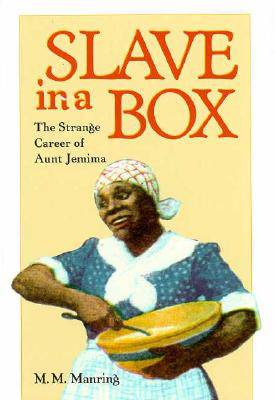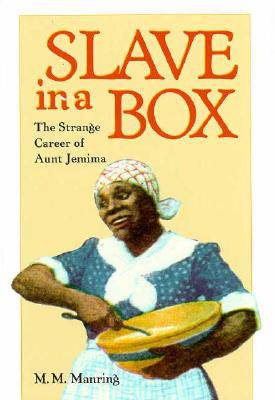
- Retrait gratuit dans votre magasin Club
- 7.000.000 titres dans notre catalogue
- Payer en toute sécurité
- Toujours un magasin près de chez vous
- Retrait gratuit dans votre magasin Club
- 7.000.0000 titres dans notre catalogue
- Payer en toute sécurité
- Toujours un magasin près de chez vous
Description
The figure of the mammy occupies a central place in the lore of the Old South and has long been used to ullustrate distinct social phenomena, including racial oppression and class identity. In the early twentieth century, the mammy became immortalized as Aunt Jemima, the spokesperson for a line of ready-mixed breakfast products. Although Aunt Jemima has undergone many makeovers over the years, she apparently has not lost her commercial appeal; her face graces more than forty food products nationwide and she still resonates in some form for millions of Americans.
In Slave in a Box, M.M. Manring addresses the vexing question of why the troubling figure of Aunt Jemima has endured in American culture. Manring traces the evolution of the mammy from her roots in the Old South slave reality and mythology, through reinterpretations during Reconstruction and in minstrel shows and turn-of-the-century advertisements, to Aunt Jemima's symbolic role in the Civil Rights movement and her present incarnation as a "working grandmother." We learn how advertising entrepreneur James Webb Young, aided by celebrated illustrator N.C. Wyeth, skillfully tapped into nostalgic 1920s perceptions of the South as a culture of white leisure and black labor. Aunt Jemima's ready-mixed products offered middle-class housewives the next best thing to a black servant: a "slave in a box" that conjured up romantic images of not only the food but also the social hierarchy of the plantation South.
The initial success of the Aunt Jemima brand, Manring reveals, was based on a variety of factors, from lingering attempts to reunite the country after the Civil War to marketing strategies around World War I. Her continued appeal in the late twentieth century is a more complex and disturbing phenomenon we may never fully understand. Manring suggests that by documenting Aunt Jemima's fascinating evolution, however, we can learn important lessons about our collective cultural identity.
Spécifications
Parties prenantes
- Auteur(s) :
- Editeur:
Contenu
- Nombre de pages :
- 210
- Langue:
- Anglais
- Collection :
Caractéristiques
- EAN:
- 9780813918112
- Date de parution :
- 05-03-98
- Format:
- Livre broché
- Format numérique:
- Trade paperback (VS)
- Dimensions :
- 155 mm x 230 mm
- Poids :
- 353 g

Les avis
Nous publions uniquement les avis qui respectent les conditions requises. Consultez nos conditions pour les avis.






